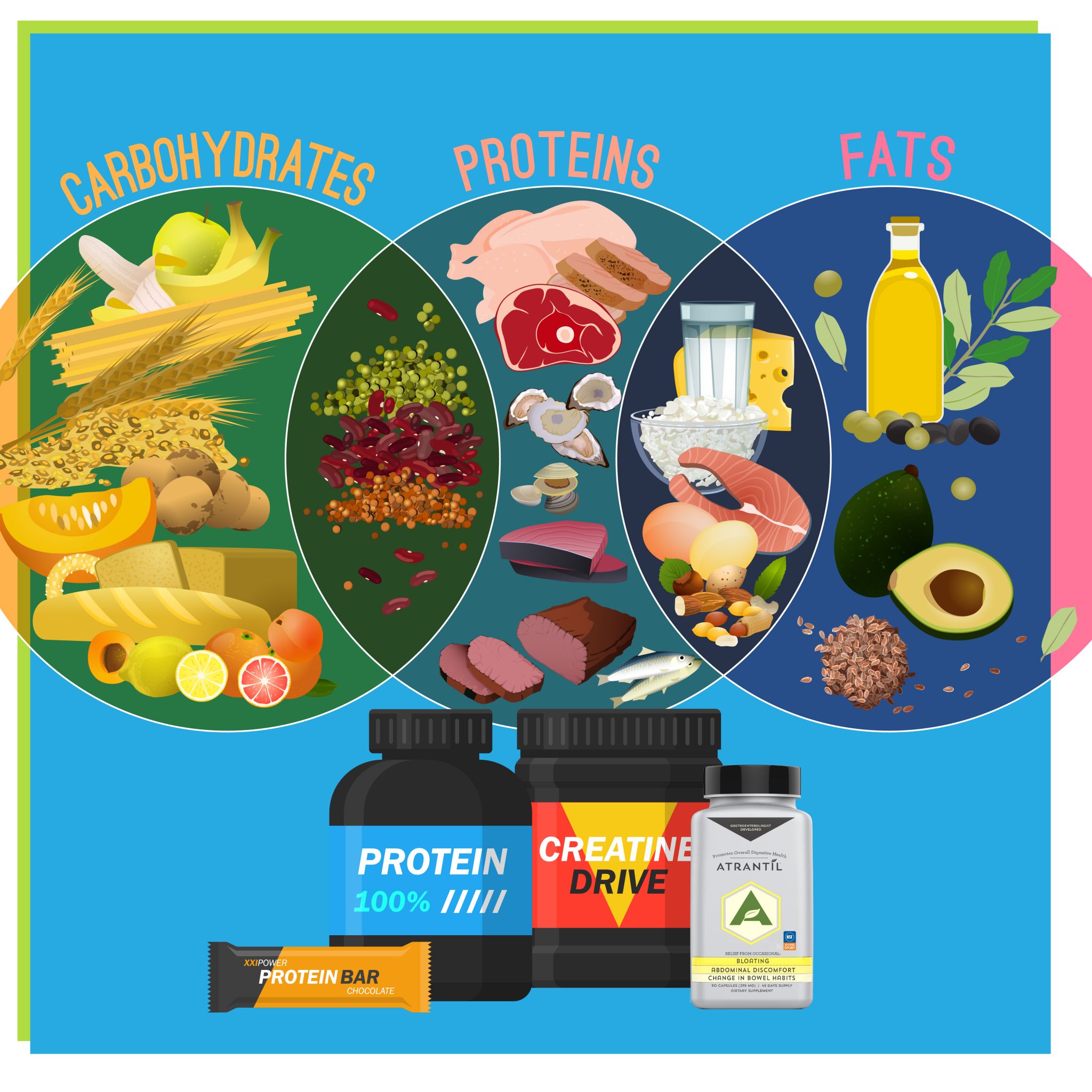Athletic Performance and Nutrition: Are Polyphenols the Untapped Potential to Proper Sports Nutrition?
 Athletes are a different breed, especially those who compete at high-level events. If there’s an athlete in your life, you know how their focus and dedication to their sport are. You often want to help support them in more ways than just from the bleachers. And the best way for you to do this is through their diet.
Athletes are a different breed, especially those who compete at high-level events. If there’s an athlete in your life, you know how their focus and dedication to their sport are. You often want to help support them in more ways than just from the bleachers. And the best way for you to do this is through their diet.
Athletes require slightly different nutrition than the rest of us. By providing them the foods they need to support muscular, vascular, joint, and brain health you’re helping them more than you know.
What is Sports Nutrition?
Sports nutrition focuses on the healthy diet of an athlete. When we exercise we deplete the reserves we have of different food groups, and this will change based on
- The type of exercise
- How long the person is performing for
- Training intensity level
Athletes need the same types of foods as everyone else. However, quantities will vary depending on the same variables we listed above.
Athletes are at a higher risk for certain types of injuries so using their diet to help promote healthy joints and organs is essential to keep them injury-free.
What Happens if Athletes Don’t Prioritize their Nutrition?
As we just mentioned, the main concern is keeping athletes performing at their highest potential and that means they need to remain injury-free. Now, you may be asking yourself, “can diet really keep athletes from sustaining an injury”?
And the answer is yes.
While foods aren’t going to prevent that misstep that causes a twisted ankle, they do help support the structures within the ankle to keep it stronger. When the tendons, ligaments, bones, and muscles surrounding joints have the right nutritional requirements, they’re able to maintain joint stability.
The wound healing process also requires certain nutrients to be able to help an injured area to recover quickly and without further damage. Each stage during this process has different nutritional needs and having a well-balanced diet can help to improve recovery times.
This information proves true when it comes to concussion recovery as well. Most high-level sports run the risk of concussions and other potentially dangerous brain injuries. Studies are showing that diet can affect severity and recovery for concussions.
What Foods Should Athletes Eat for Optimal Performance?
Athletes should be eating a well-balanced diet, just like everyone else. They should focus on getting all of the staples into their diet (remember the food pyramid from grade school? That’s your focus).
The quantities will vary and often be higher than those who live a more average lifestyle.
Athletes will be able to tell if their diet isn’t quite right if they are feeling lethargic or not performing at the intensity they are used to. Some of the main foods that athletes should increase if they’re feeling sluggish include:
- Calories
- Carbohydrates
- Fluids
- Iron and other vitamins/minerals
- Protein
Athletes are at high risk for developing eating disorders. They will often go to extremes to get the look they desire hoping for optimal performance but end up malnourished. The foods listed above are the ones necessary to keep energy and performance levels at their peak.
Calories
Calories are a unit of energy measurement. You’ll see a calorie level on pretty much every food item you buy. This number tells you how much energy eating that item will give you.
Energy is then used and burned by the activities you do. Certain food items are higher in calories meaning it gives you more energy stores to use, but this also means that if you aren’t burning those calories off, you’re likely to gain some weight.
Daily calories will vary depending on the sport and talking to your doctor or a registered dietitian will help you to determine what is best for you, your situation, and your particular energy expenditure.
Carbs
Carbs are extremely high in calories. That is why you’ll often hear about endurance athletes’ carb-loading during different training periods. Carbohydrates are the best way for athletes to maintain energy throughout long events. Broken down by the hour these are the recommended amounts of carbs to get during athletic events based on studies:
- 30-75 minutes = small amounts of carbs or mouth rinses
- 1-2 hours = 30 grams/hour
- 2-3 hours = 60 grams/hour
- 2.5+ hours = 90 grams/hour
Fluids
Studies show that losing 2% or more of your body mass in fluids during exercise will impair your performance. Athletes should be prioritizing their fluid intake, especially in hot climates. Some athletes find hyperhydrating prior to events helps but this runs the risk of hyponatremia (depletion of essential nutrients in the blood).
Another thing to focus on in this area is sodium loss which is often lost through sweat. Rehydrating to replenish the lost sodium, electrolytes, and fluids helps keep performance levels high.
Each athlete’s fluid loss will differ but can range from 0.5-2 liters during training and competing.
Vitamins and Minerals
Eating your fruits and vegetables is where you will get the majority of your vitamins and minerals. Some of your minerals like iron will come from protein-rich foods but a vast majority come from fruits and vegetables.
These foods will also provide you with polyphenols, prebiotics, and essential antioxidants that help combat the carbohydrate oxidation that happens during exercise.
Make sure to be getting enough:
- Iron
- Vitamins A, B, C, D, E, and K
- Calcium
- Omega 3 fatty acids
- Potassium
- Magnesium
Important research done by Dr. Jo Bowtell, at Exeter University, in conjunction with the Gatorade Labs, demonstrated that 1,000 milligrams of complex polyphenols (like those found in Atrantil) daily were shown to:
- Improve athletic performance
- Increased nitric oxide, which increases blood flow
- Quicker recovery and they actually heal from injuries faster as well
Protein
Protein is necessary for healthy muscle growth. However, too much protein has become an issue in athletes that are supplementing it with shakes. Overloading on protein can lead to kidney problems and a decrease in calcium absorption. Western diets are often high enough in protein that addition through these supplements isn’t necessary. Consult with your physician before adding them to your diet.
Eating protein during exercise isn’t necessary and is actually more beneficial as a postexercise meal to help muscles and other tissues recover.
Should Athletes Use Supplements?
 Athletes do expend much more of their energy than the general population. Certain food groups are really difficult to get in enough to support your optimal health. Supplements can help to achieve this. But taking supplements should be done carefully and only done under the supervision of a medical professional.
Athletes do expend much more of their energy than the general population. Certain food groups are really difficult to get in enough to support your optimal health. Supplements can help to achieve this. But taking supplements should be done carefully and only done under the supervision of a medical professional.
Supplements on the market are not able to be FDA approved and so there are no regulations in place to ensure their efficiency or safety. However, trying to get adequate amounts of things like polyphenols or other nutrients into your diet can be difficult.
Getting 1,000 milligrams would require an insane amount of fruits and vegetables that wouldn’t be realistic without gastrointestinal side effects. So using supplements to reach this goal is ideal since you’re intaking fewer sugars.
NSF has created a special for sport certification and this ensures that you’re getting exactly what is on the bottle. Their guidelines are of the highest standards and quality, ensuring that athletes don’t accidentally dope with products that include products that aren’t on the label.
Atrantil is proud to offer you this seal of approval and your daily 1,000 milligrams of polyphenols in just 4 capsules. In addition to the enhanced sports performance, taking this amount of polyphenols controls systemic inflammation which is beneficial for post-exercise and injury recovery (including neuroinflammation which is a common issue among athletes).
If Atrantil sounds like the right supplement for your athletic performance, ask your doctor to make sure it’s safe for you and get yours here.
- https://pubmed.ncbi.nlm.nih.gov/20130158/
- https://journals.lww.com/acsm-csmr/Fulltext/2016/01000/The_Role_of_Nutritional_Supplements_in_Sports.9.aspx
- https://medlineplus.gov/ency/article/002458.htm
- https://www.ncbi.nlm.nih.gov/pmc/articles/PMC4540168/#__sec1title
- https://www.ncbi.nlm.nih.gov/pmc/articles/PMC6445811/